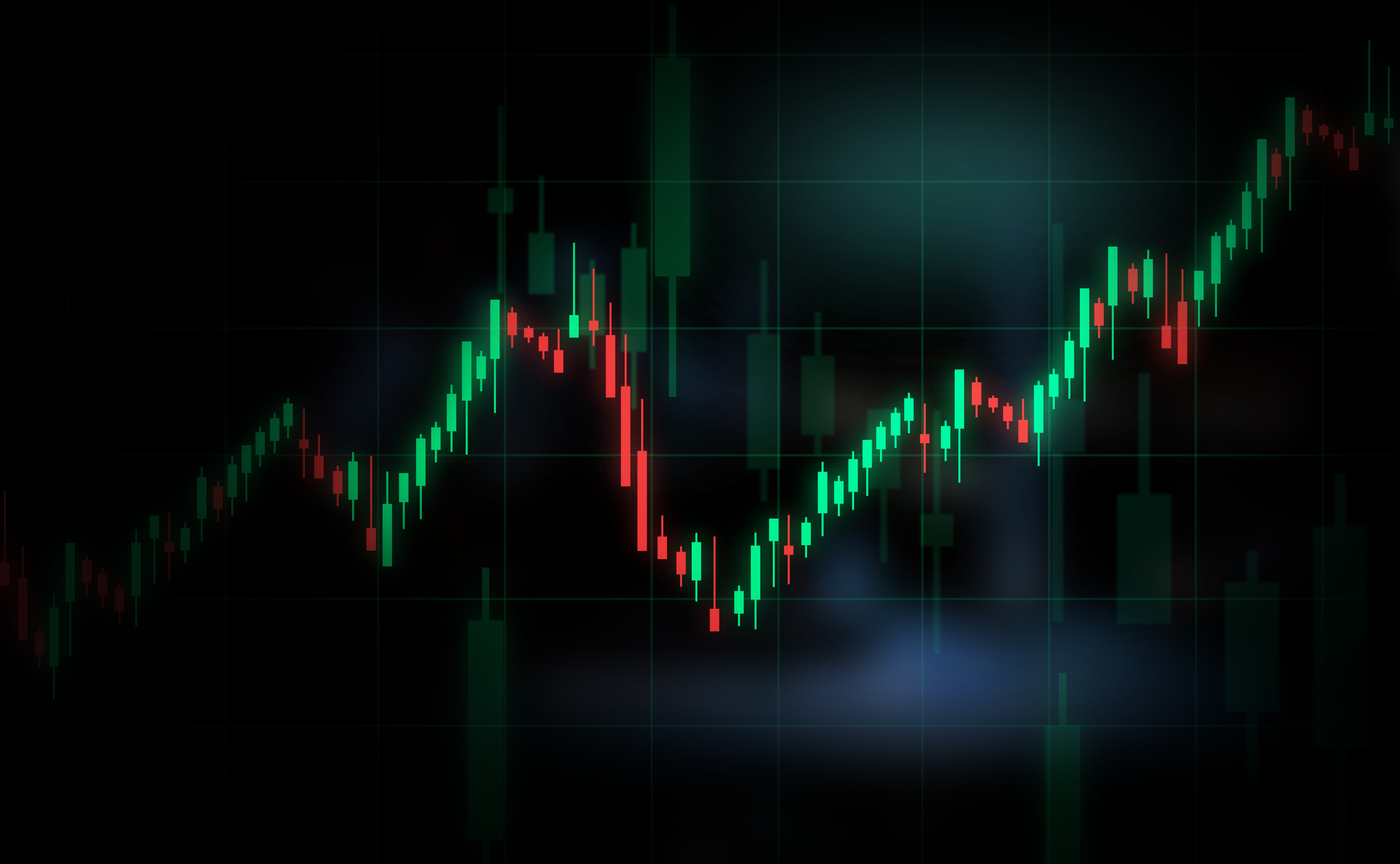Profit and prosper with the best of Kiplinger's advice on investing, taxes, retirement, personal finance and much more. Delivered daily. Enter your email in the box and click Sign Me Up.
You are now subscribed
Your newsletter sign-up was successful
Want to add more newsletters?

Delivered daily
Kiplinger Today
Profit and prosper with the best of Kiplinger's advice on investing, taxes, retirement, personal finance and much more delivered daily. Smart money moves start here.

Sent five days a week
Kiplinger A Step Ahead
Get practical help to make better financial decisions in your everyday life, from spending to savings on top deals.

Delivered daily
Kiplinger Closing Bell
Get today's biggest financial and investing headlines delivered to your inbox every day the U.S. stock market is open.

Sent twice a week
Kiplinger Adviser Intel
Financial pros across the country share best practices and fresh tactics to preserve and grow your wealth.

Delivered weekly
Kiplinger Tax Tips
Trim your federal and state tax bills with practical tax-planning and tax-cutting strategies.

Sent twice a week
Kiplinger Retirement Tips
Your twice-a-week guide to planning and enjoying a financially secure and richly rewarding retirement

Sent bimonthly.
Kiplinger Adviser Angle
Insights for advisers, wealth managers and other financial professionals.

Sent twice a week
Kiplinger Investing Weekly
Your twice-a-week roundup of promising stocks, funds, companies and industries you should consider, ones you should avoid, and why.

Sent weekly for six weeks
Kiplinger Invest for Retirement
Your step-by-step six-part series on how to invest for retirement, from devising a successful strategy to exactly which investments to choose.
By John F. Wasik
Buy high! No, we haven't lost our minds.
History shows that you can earn great returns buying stocks with sky-high share prices. Consider Berkshire Hathaway (symbol BRKA). If you had invested in Warren Buffett's company in September 1990, you would have paid an outlandish $5,900 per share. Today, the stock goes for almost $105,000, a nearly 18-fold increase.
From just $107.88 $24.99 for Kiplinger Personal Finance
Become a smarter, better informed investor. Subscribe from just $107.88 $24.99, plus get up to 4 Special Issues

Sign up for Kiplinger’s Free Newsletters
Profit and prosper with the best of expert advice on investing, taxes, retirement, personal finance and more - straight to your e-mail.
Profit and prosper with the best of expert advice - straight to your e-mail.
The key is to avoid confusing a stock's price with its value. Value is determined by comparing a stock's price with such fundamental factors as a company's earnings, revenues or book value (assets minus liabilities). So if a stock trades at $10 and the underlying company has earned 20 cents a share, the stock sells at 50 times earnings. Compare that with a $100 stock that trades at ten times earnings of $10 per share. In terms of true value, the $100 stock is the cheaper of the two (although that doesn't necessarily mean it will perform better in the future).
Several factors not strictly related to a firm's results can influence its share price. One is how long a firm has been around. Another is the price at which a firm sets its initial offering. When Google went public in 2004 at the unusually high price of $85, its stock was already within hailing distance of triple digits.
The final -- and perhaps most important -- determinant of share price is a company's attitude toward stock splits. A split changes none of a stock's key measures of value. But many companies believe investors will find their stocks more appealing if the absolute price remains low, so they regularly split their stocks. By contrast, Berkshire's Class A shares reached six digits not only because of the company's successful record but also because Buffett despised splits (he split Berkshire's Class B shares early this year to facilitate the purchase of Burlington Northern).
As of June 4, 39 stocks trading in the U.S. fetched $100 or more. Below we focus on five with bright prospects. (All share prices are as of that day's close.)
Google (GOOG) $499
Google's once-unstoppable shares are in retreat. The stock's price is one-third below its record high, set in November 2007. It is having a particularly rough 2010, dropping 20% through early June because of concerns about slowing growth and Google's decision to effectively shutter its search engine in China.
The good news is that Google's valuation has fallen to a level that would have seemed unimaginable a few years ago. It sells for 18 times estimated 2010 earnings of $27.82 per share. As recently as 2007, Google's average price-earnings ratio for the year was over 40.
And although Google's growth is clearly slowing (not surprising, given that revenues hit nearly $24 billion last year), the company has a firm grip on its primary market and plenty of opportunities to expand. "Paid search" -- in which Web-site owners pay a fee to have their sites receive top placement in search results -- account for nearly all of Google's revenues. This segment should continue to grow as advertisers continue to flee to the Internet. The Mountain View, Cal., company is also working on its own PC operating system -- a direct challenge to Microsoft's Windows empire -- and is developing an Android-based tablet computer to rival Apple's iPad.
Google has a pristine balance sheet: no debt and cash of $26.5 billion. "Google is a core holding trading at a compelling valuation," says analyst Scott Kessler, of Standard & Poor's. S&P's 12-month target price for Google is $725.
Apple (AAPL) $256
Until the current correction got under way, Apple was the face of the bull market. The stock soared from $78 in early 2009 to a peak of $272 in April, adding more than $150 billion in market value.
With its iPod, iPhone and iPad, Apple is not just a technological innovator but a cultural phenomenon. The Cupertino, Cal., firm shipped almost nine million iPhones and three million Macintosh computers in the quarter that ended March 27, and it sold two million iPads within two months of the device's release on April 3. Although the iPad faces robust competition, it looks like a game changer. It's not merely a user-friendly tool for providing information; it delivers with elan. As for the iPhone, Apple recently unveiled an upgraded model with a variety of new features.
Apple shares are not outrageously expensive. That's because the appreciation has been commensurate with profit growth. Apple sells for 19 times estimated earnings of $13.38 per share for the year that ends this September. Like Google, Apple has a fortress-like balance sheet. The company holds $23 billion in cash and has no debt.
AutoZone (AZO) $189
From the flashy to the mundane, we move to AutoZone, the nation's largest retailer of auto parts. The Memphis-based company operates some 4,500 stores in the U some 4,500 stores in the U.S. and Mexico. That number is up 50% from ten years ago, providing one clue how AutoZone has been able to boost profits by a factor of four since 2001.
A couple of trends put AutoZone shareholders in the driver's seat. For starters, baby-boomers love old cars. That's a huge market -- mostly men who relish the opportunity to fix up a classic Camaro or Thunderbird. A high unemployment rate also bodes well for AutoZone because people without jobs or worried about losing their jobs hang on to cars longer. That means drivers need to spend more to keep their vehicles going.
AutoZone has plenty of room to grow in Mexico, where it has 212 stores. Executives are looking south of the border to help achieve their goal of increasing the number of stores by 4% annually. The company also hopes to boost sales to professional repair shops, where it has only 1.5% of the market. Selling to shops isn't as profitable as serving gearheads. But because that business doesn't involve building new stores, it is an extra source of revenue with few additional costs. At $189, AutoZone shares sell at 13 times estimated earnings of $14.61 per share for the year that ends this August.
Washington Post Co. (WPO) $450
The latest circulation figures for the Washington Post, the flagship of the Washington Post Co., paint a grim picture. For the six-month period that ended March 31, weekday circulation fell 13.1%, to an average of 578,500 (compared with a peak of 830,000 in 1994), while Sunday sales dropped 8.2%, to about 800,000 (compared with a high-water mark of 1.1 million in 1992). The company also recently announced that it has put its troubled Newsweek magazine on the block. Meanwhile, the stock is down 55% from its 2004 high.
Look beyond the albatross of dead-tree media, though, and you find the company's crown jewel: Kaplan Inc., which started as a provider of test-preparation services and is now one of the world's fastest-growing for-profit education companies. Kaplan's annual revenues have grown at a compounded rate of 27% over the past ten years, to $2.6 billion. That represents 58% of the company's sales.
The stock sells at 22 times estimated 2010 earnings of $20.58 per share, a big jump from the depressed levels of 2008 and 2009. The P/E may seem high, but it's reasonable if you view the Post Co. as primarily a provider of education services rather than as a traditional media concern.
Wesco Financial Corp. (WSC) $342
Charlie Munger, 86, may not get as much attention as his younger sidekick, Warren Buffett, who turns 80 in August. But Munger is no slouch when it comes to business matters. In addition to serving as vice-chairman of Berkshire Hathaway, he is chairman, president and chief executive of Wesco Financial Corp., a Pasadena, Cal.-based mini-conglomerate with interests in insurance, furniture rental and steel warehousing.
Wesco is a kind of low-rent version of Berkshire Hathaway, which owns 80% of the company. Munger admitted as much in Wesco's 2009 annual report, in which he said Wesco was "not an equally-good-but-smaller version of Berkshire Hathaway." But the company's close ties to Berkshire and its hefty cash position, $2.6 billion at last report, give it an edge in the insurance business. Wesco's shares are also cheaper than Berkshire's. The stock trades for just a shade above book value, the preferred measure of value for insurance companies. Berkshire trades at about 1.2 times book value. Morningstar estimates Wesco's fair value at $455 per share.
Profit and prosper with the best of Kiplinger's advice on investing, taxes, retirement, personal finance and much more. Delivered daily. Enter your email in the box and click Sign Me Up.
-
 Look Out for These Gold Bar Scams as Prices Surge
Look Out for These Gold Bar Scams as Prices SurgeFraudsters impersonating government agents are convincing victims to convert savings into gold — and handing it over in courier scams costing Americans millions.
-
 How to Turn Your 401(k) Into A Real Estate Empire
How to Turn Your 401(k) Into A Real Estate EmpireTapping your 401(k) to purchase investment properties is risky, but it could deliver valuable rental income in your golden years.
-
 My First $1 Million: Retired Nuclear Plant Supervisor, 68
My First $1 Million: Retired Nuclear Plant Supervisor, 68Ever wonder how someone who's made a million dollars or more did it? Kiplinger's My First $1 Million series uncovers the answers.
-
 Stocks Sink With Alphabet, Bitcoin: Stock Market Today
Stocks Sink With Alphabet, Bitcoin: Stock Market TodayA dismal round of jobs data did little to lift sentiment on Thursday.
-
 Dow Rises 313 Points to Begin a Big Week: Stock Market Today
Dow Rises 313 Points to Begin a Big Week: Stock Market TodayThe S&P 500 is within 50 points of crossing 7,000 for the first time, and Papa Dow is lurking just below its own new all-time high.
-
 Nasdaq Leads Ahead of Big Tech Earnings: Stock Market Today
Nasdaq Leads Ahead of Big Tech Earnings: Stock Market TodayPresident Donald Trump is making markets move based on personal and political as well as financial and economic priorities.
-
 11 Stock Picks Beyond the Magnificent 7
11 Stock Picks Beyond the Magnificent 7With my Mag-7-Plus strategy, you can own the mega caps individually or in ETFs and add in some smaller tech stocks to benefit from AI and other innovations.
-
 Nasdaq Adds 211 Points as Greenland Tensions Ease: Stock Market Today
Nasdaq Adds 211 Points as Greenland Tensions Ease: Stock Market TodayWall Street continues to cheer easing geopolitical tensions and President Trump's assurances that there will be no new tariffs on Europe.
-
 Nasdaq Takes a Hit as the Tech Trade Falters: Stock Market Today
Nasdaq Takes a Hit as the Tech Trade Falters: Stock Market TodayThe Dow Jones Industrial Average outperformed on strength in cyclical stocks.
-
 Stocks Extend Losing Streak After Fed Minutes: Stock Market Today
Stocks Extend Losing Streak After Fed Minutes: Stock Market TodayThe Santa Claus Rally is officially at risk after the S&P 500's third straight loss.
-
 Santa Claus Rally at Risk as Tech Stocks Slump: Stock Market Today
Santa Claus Rally at Risk as Tech Stocks Slump: Stock Market TodayThe Nasdaq Composite and Dow Jones Industrial Average led today's declines as investors took profits on high-flying tech stocks.